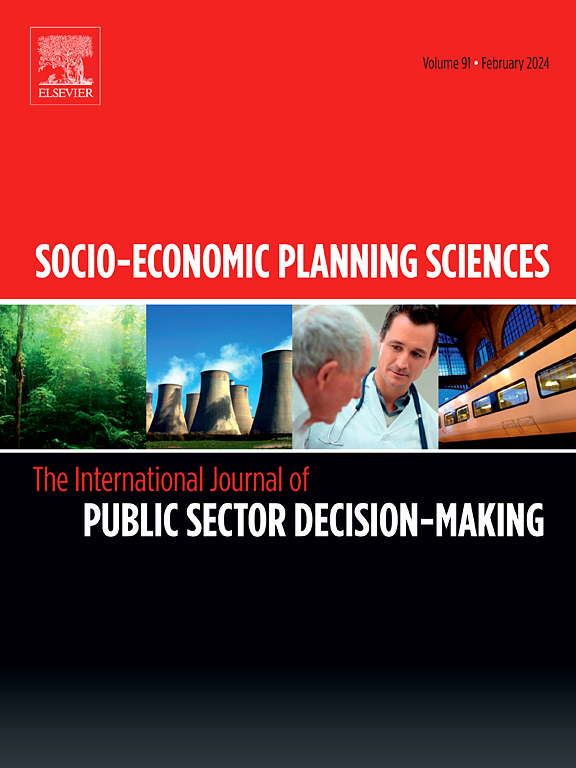Forecasting the Portuguese public hospitals performance: An impossible task?
IF 5.4
2区 经济学
Q1 ECONOMICS
引用次数: 0
Abstract
This study has two main objectives: first, to evaluate the performance of public hospitals in Portugal and, second, to predict their development Utilizing Data Envelopment Analysis (DEA) and the Malmquist Productivity Index (MPI), this study predicts and evaluates the performance of public hospitals in Portugal. From 2013 to 2017, a sample of 28 public hospitals and hospital centers was analyzed. In 2018, projected MPI values were compared to actual values. The data used are those officially available at the time. The objective was also to delimit the time of the present research so that in a future study it will be possible to compare it with the period of the COVID pandemic. In this research, pre-COVID data are worked on and in a future publication, when official data are available for a period of five years post-COVID, we can compare the results obtained. The average DEA score for hospitals has been 0.648, and the score under variable returns to scale is 0.764, indicating a gradual improvement in performance. Over the years, both hospital and scale efficiency have increased. There is seasonality in the overall average MPI, with significant peaks in May and June. The study indicates that technological advancements have a greater impact on the MPI than changes in efficiency. The projected MPI indicates a marginal uptick for the year 2018, although the outcomes lack sufficient reliability.
预测葡萄牙公立医院的表现:一个不可能完成的任务?
本研究有两个主要目标:第一,评估葡萄牙公立医院的绩效,第二,预测其发展利用数据包络分析(DEA)和马尔姆奎斯特生产力指数(MPI),本研究预测和评估葡萄牙公立医院的绩效。2013年至2017年,以28家公立医院和医院中心为样本进行分析。2018年,预测的MPI值与实际值进行了比较。所使用的数据是当时的官方数据。目的还在于划定本研究的时间范围,以便在未来的研究中可以将其与COVID大流行期间进行比较。在这项研究中,研究人员对covid前的数据进行了研究,在未来的出版物中,当有covid后五年的官方数据时,我们可以比较所获得的结果。医院的DEA平均得分为0.648分,规模可变收益得分为0.764分,表明绩效在逐步改善。多年来,医院和规模效率都有所提高。总体平均MPI具有季节性,在5月和6月达到显著峰值。研究表明,技术进步对MPI的影响大于效率的变化。尽管预测结果缺乏足够的可靠性,但预计的MPI表明2018年将略有上升。
本文章由计算机程序翻译,如有差异,请以英文原文为准。
求助全文
约1分钟内获得全文
求助全文
来源期刊

Socio-economic Planning Sciences
OPERATIONS RESEARCH & MANAGEMENT SCIENCE-
CiteScore
9.40
自引率
13.10%
发文量
294
审稿时长
58 days
期刊介绍:
Studies directed toward the more effective utilization of existing resources, e.g. mathematical programming models of health care delivery systems with relevance to more effective program design; systems analysis of fire outbreaks and its relevance to the location of fire stations; statistical analysis of the efficiency of a developing country economy or industry.
Studies relating to the interaction of various segments of society and technology, e.g. the effects of government health policies on the utilization and design of hospital facilities; the relationship between housing density and the demands on public transportation or other service facilities: patterns and implications of urban development and air or water pollution.
Studies devoted to the anticipations of and response to future needs for social, health and other human services, e.g. the relationship between industrial growth and the development of educational resources in affected areas; investigation of future demands for material and child health resources in a developing country; design of effective recycling in an urban setting.
 求助内容:
求助内容: 应助结果提醒方式:
应助结果提醒方式:


